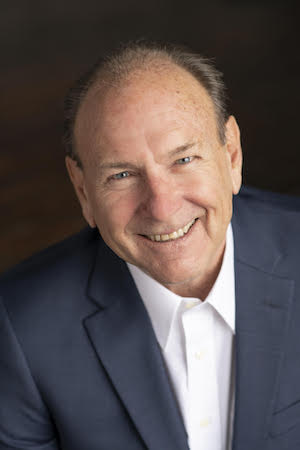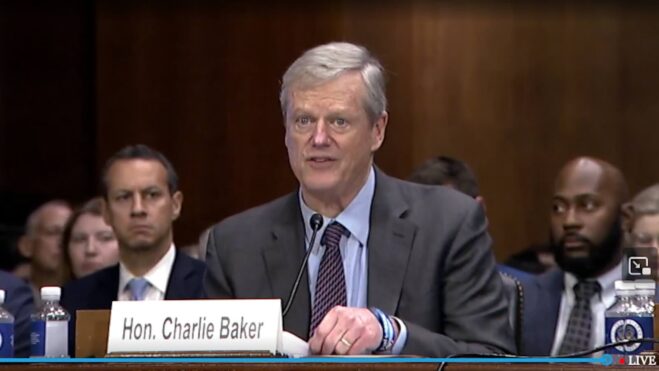Schuetz: The More You Know, The More Effectively You Can Regulate
Ignorance is not to be celebrated if you’re serving on a gaming commission
6 min

“I was gratified to be able to answer promptly, and I did. I said I didn’t know.”
— Mark Twain
I was not a normal gaming regulator, understanding that those who have known me for any substantive time would argue I am not a normal anything.

In 2011, I was appointed by California Gov. Jerry Brown as a commissioner on the California Gambling Control Commission (CGCC). At that time, and it continues today, California was the largest gaming state in the nation. This is a reality poorly understood because a large mass of tribal casinos are dispersed throughout the state. It also has horse racing, ADW, a big lottery, and an extensive array of card rooms.
It was a rather unusual appointment for a gaming regulator, and it was unusual because I had an extensive background in gaming that had started 30 years before the appointment. Not only was this extensive experience relevant, but any gaming experience was relevant, for I was the first person appointed to the CGCC who had any gaming experience at all.
In my life before regulation, I had spent several years researching the origin of gaming regulation in Nevada in an academic setting. I had worked in many casinos and casino departments, from dice and blackjack dealer to CEO and a lot of things in between. I had also worked in many markets across the U.S. and published extensively on the topics of casinos and regulation. I had also lectured about casino management and regulation at universities in Macau, Switzerland, and across the U.S.
A few months after my appointment to the commission, I was notified that I would also be the consultant to the governor’s office on gaming matters and serve as a special consultant to the House and Senate committees that oversee gaming in the California Legislature.
I was roped into all of these roles because, again, I was the only person around who had any gaming experience, and, as Erasmus suggested in 1500, “In the land of the blind, the one-eyed man is king.”
A student of government might suggest that all of these roles in California presented apparent potential conflicts, and they would be right.
I could envision helping the legislative assistants draft language into a gaming bill and later working with the governor’s office to draft a veto message for the bill. I would bring up these concerns occasionally and was told not to worry about it. It seems there was a “don’t worry about it” theory of ethics in California, and it worked, for no gaming bill was ever passed during my tenure there.
Resign of the times
My experience as a regulator in California was not without incident. There was a time when the governor’s office ordered me to show up for work in my state-assigned office. I was uncomfortable in the commission offices and chose to work at a table in the historic and beautiful California State Library in downtown Sacramento. I made this decision because I was very uncomfortable with the ethical environment within the commission offices.
This concern seemed to have been justified when the live-in boyfriend of our executive director was involved in providing confidential information from the California Department of Justice to a consultant friend who worked in the gaming space for some California cardroom operators. The executive director and her live-in boyfriend were quite close with the consultant, who was fined a large amount and barred from being associated with the industry.
It was a rather exciting day when I went into the commission offices and received the notice that both the commission chair and the executive director were resigning their positions, to be effective on the same day. See here, here, and here.
The fact that my experience was unique in the regulatory field is an unfortunate reality in gaming regulation. California had a law stating that a commissioner could not be appointed if he or she had worked for a gaming company in the prior two years. I slipped under this bar because, during the prior two years, I had been working for the state of Kansas to help them introduce casinos and teaching at a Swiss university. Neither of these entities were a gaming company.
One of my first realizations in becoming a gaming commissioner was that my fellow commissioners had little understanding as to how anything worked in gaming. This should not be surprising, for they had no experience in gaming.
If there is one reality about gaming regulatory agencies that the public should be alive to, it is that gaming regulators don’t know much about gaming, especially the younger agencies. Moreover, while they can read regulations and gaming laws until they are blue in the face, they do not understand the underlying reality of the industry.
A person whose only experience with baseball was in reading the rules would probably not be too good at playing it or understanding its subtleties, and there are a great many aspects of baseball that can only be understood by playing the game.
We then find the industry in a trap: Many regulators do not understand the industry, and it is often hard for them to learn. I believe a material reason why it is hard for them to learn is because they don’t want to look foolish asking what some may deem stupid questions. We all have egos.
Well, learning is essential, and I believe that there can be more to the process than just walking into the office and having someone tell them, “Congratulations, you are now a regulator.”
Learning is encouraged
I also believe that the gaming industry suffers because of this lack of regulatory understanding of the reality of the industry. One reason the industry suffers is that it often becomes overregulated in areas due to regulators’ fear and ignorance, a topic I discussed here. A viable education program for regulators can help in this and other areas.
I will share a few things I was able to introduce when I was in California to enhance the knowledge and skill levels of the many people I worked with who were interested in learning more about the gaming space:
- I organized a visit to our regulatory brethren in Nevada with a few of our commissioners. We loaded a car in Sacramento the day before a Nevada Gaming Control Board meeting and headed to Carson City, Nevada’s capital. I knew the chairman of the NGCB and talked him into going to dinner with us the night before the meeting. This was a great learning visit. The next day, we attended the meeting and then met with the entire board in a conference room after the meeting to visit and discuss issues. It was all good, and all involved better understood how and why things were done.
- We invited speakers to visit us in Sacramento and present at our hearing auditorium. We would invite the senior folks from the commission, the attorney general’s office and the Department of Justice, key legislators and aides, folks from the Division of Gaming Enforcement, and whatnot to see the presentation. People from universities presented, industry leaders spoke, support and related companies shared their knowledge and insights, as did a representative from FinCEN, the FBI, and so forth. We even had the head gaming regulator from the Isle of Man, a friend, who made a presentation. None of these speakers charged us a cent, although I would take the speaker to lunch with a small group after the presentation. One caveat is to ensure that the speaker meets all relevant ethical tests and rules governing ex parte communications and other potential ethical challenges.
- The last thing I suggested, and a few of the commissioners took me up on this, was to go to a tribal casino or a large card room and follow around the shift boss for eight hours. They were always more than willing to allow this. I recommended that this occur on a swing shift when the places are jumping. If someone shadows a casino shift boss for a shift, especially on a Saturday night, they will gain a genuine appreciation for what takes place in a casino or other gaming environment. It will also gain some respect and street cred for the regulator for shadowing a shift boss because the news spreads quickly around the industry.
If you are going to be a regulator, you should make every effort to be a good one. This can’t be accomplished by sequestering oneself in an office and reading, and if you do go out, you can’t just go to industry-sponsored conferences where all of the shills congregate to stroke one another.
Get out in the world and meet the people that make gambling happen where it happens. Ask lots of questions and keep moving.
Also, encourage the politicians who make the appointments to seek out people who have experience in gambling. Not everybody needs to have worked in gaming, but it would be nice if somebody on the commission, board, or authority had some insights into how the industry works. There are folks who have built a nice financial cushion in the business and want to slow down and continue to serve the industry. These folks can add much to the regulatory discussion. So, recommend to the leaders who appoint people to the boards and commissions to broaden their horizons and consider someone who understands the industry.
—
Richard Schuetz entered the gaming industry working nights as a blackjack and dice dealer while attending college and has since served in many capacities within the industry, including operations, finance, and marketing. He has held senior executive positions up to and including CEO in jurisdictions across the United States, including the gaming markets of Las Vegas, Atlantic City, Reno/Tahoe, Laughlin, Minnesota, Mississippi, and Louisiana. In addition, he has consulted and taught around the globe and served as a member of the California Gambling Control Commission and executive director of the Bermuda Casino Gaming Commission. He also publishes extensively on gaming, gaming regulation, diversity, and gaming history. Schuetz is the CEO American Bettors’ Voice, a non-profit organization dedicated to giving sports bettors a seat at the table.






